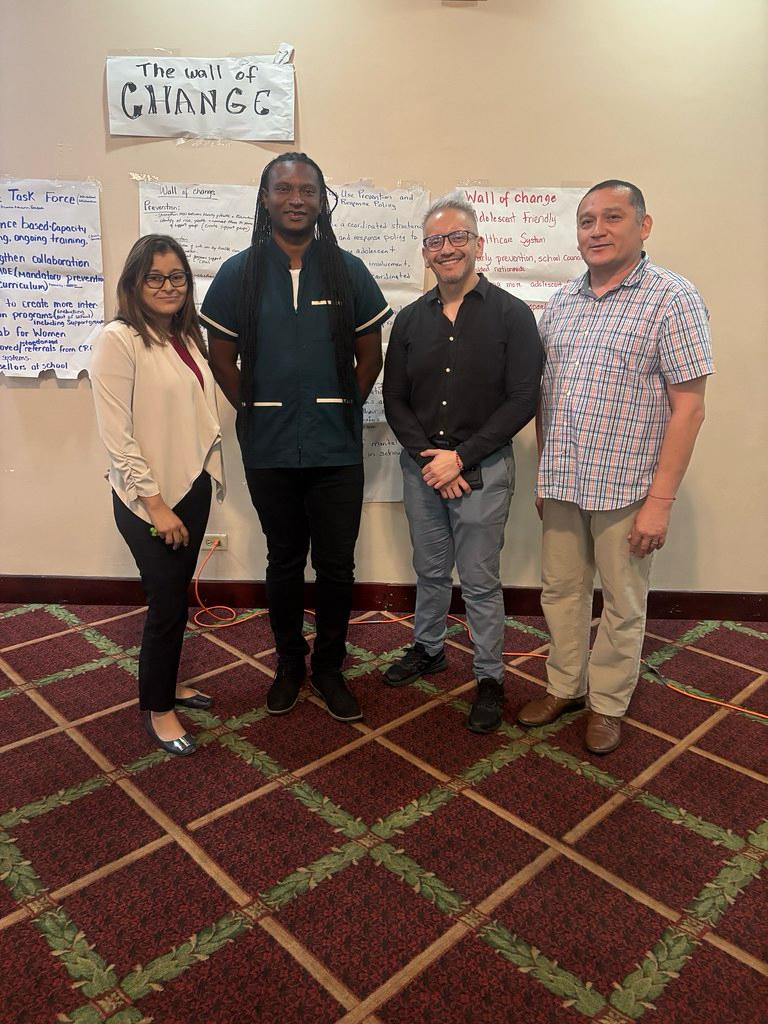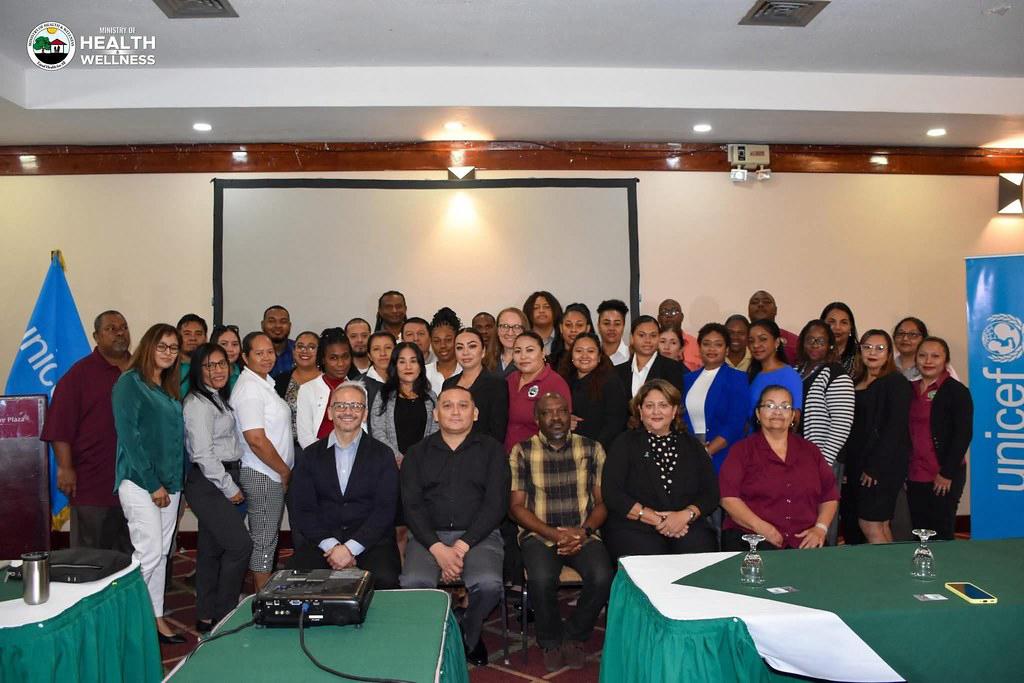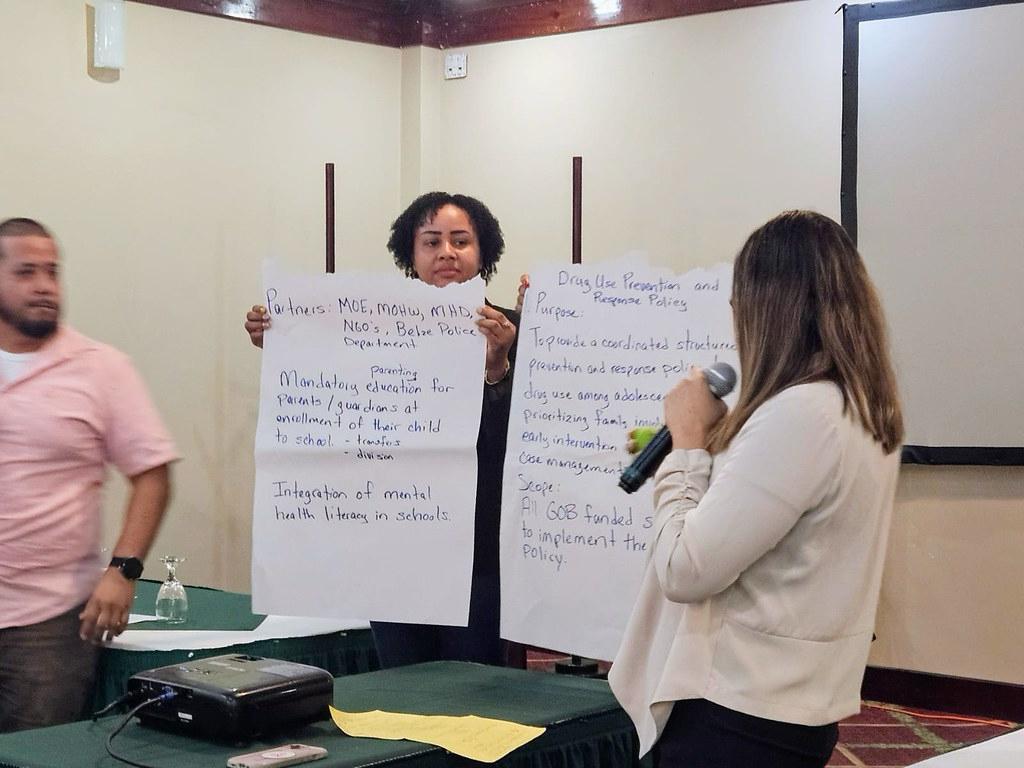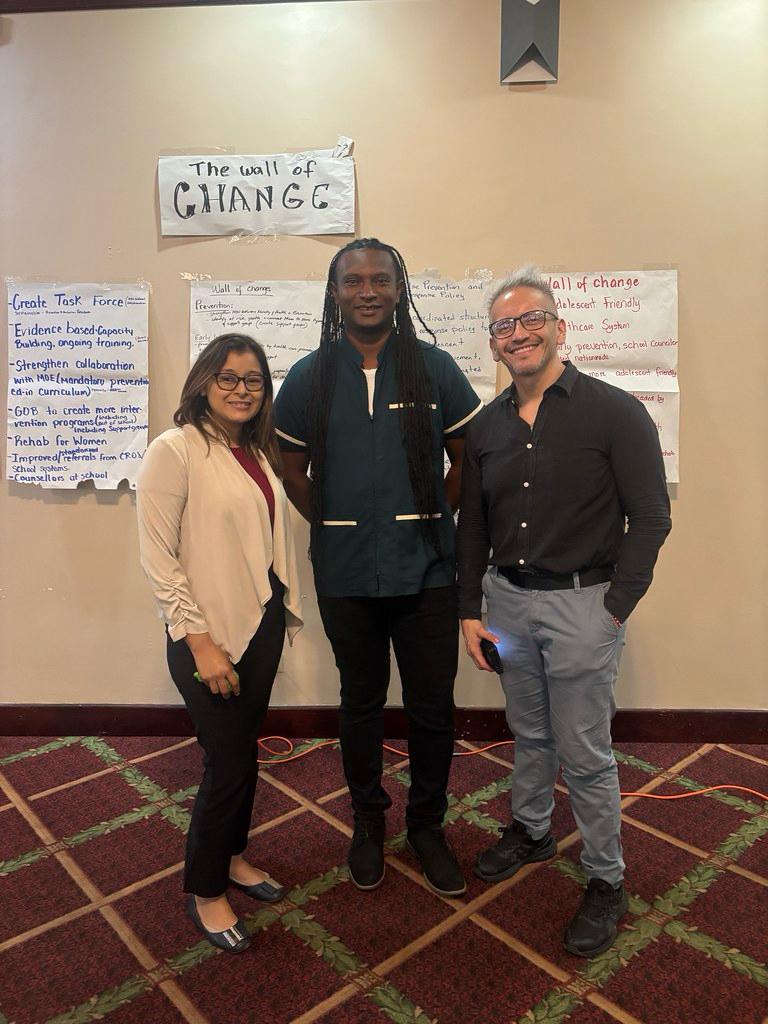This past week, I had the honor of attending a transformative training hosted by the Ministry of Health & Wellness (MOHW), with the technical and financial support of UNICEF Belize and CICAD/OAS. The training focused on Stigma, Discrimination, and Adolescent-Friendly Services Towards Substance Misusers—a timely and crucial initiative that aims to close the service gap for adolescents at risk of or struggling with substance misuse.
I participated in this training wearing several hats: as Vice President of the Mental Health Association of Belize, Clinical Director of Meta Belize Family Resources, a licensed trauma-informed psychotherapist, and an educator working to strengthen our national mental health response. Across all these roles, I see the urgency for services that are non-judgmental, developmentally appropriate, confidential, and trauma-informed—and this training reaffirmed that we are moving in the right direction.
One of the most meaningful parts of the experience was engaging in a collaborative group policy activity. Our team developed a policy proposal focused on prevention through the lens of family systems and school-based support. Specifically, our proposed intervention calls for the establishment of comprehensive prevention programs in all government-aided schools, with attention to:
- Early education on substance use and mental wellness
- Parental and caregiver engagement
- Addressing social determinants of health, including poverty and access to childcare
- Embedding culturally responsive and trauma-informed practices across all youth services
As a mental health professional, I know that substance misuse among adolescents is rarely about rebellion or defiance—it’s often about pain, trauma, disconnection, and unmet needs. Prevention must therefore be holistic, relational, and rooted in community. We cannot talk about substance use without talking about family, poverty, school climate, mental health, and systemic equity.
This training brought together diverse stakeholders committed to breaking the cycle of stigma and building youth-friendly systems of care that empower rather than punish. It also reminded me of the power of collaboration across sectors and disciplines when addressing complex public health challenges.
I commend the Ministry of Health & Wellness, NDACC, UNICEF, and CICAD/OAS for this meaningful investment in our workforce—and in our youth. As we continue to expand access to services that are inclusive, compassionate, and evidence-based, we are also building a healthier, more resilient Belize.

Let’s keep doing the work. Our youth deserve no less.
#MentalHealthBelize #AdolescentCare #MOHW #UNICEFBelize #CICADOAS #MetaBelize #TraumaInformedCare #SubstanceUsePrevention #YouthEmpowerment #StrongerBelize #InclusiveServices #HealthierFutures #EducatorVoices



